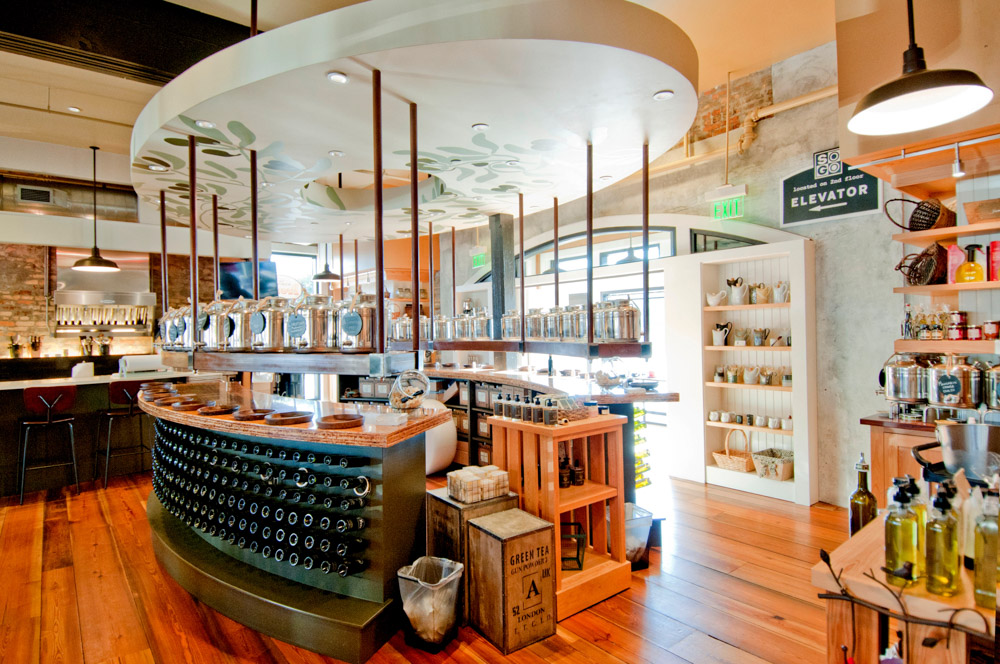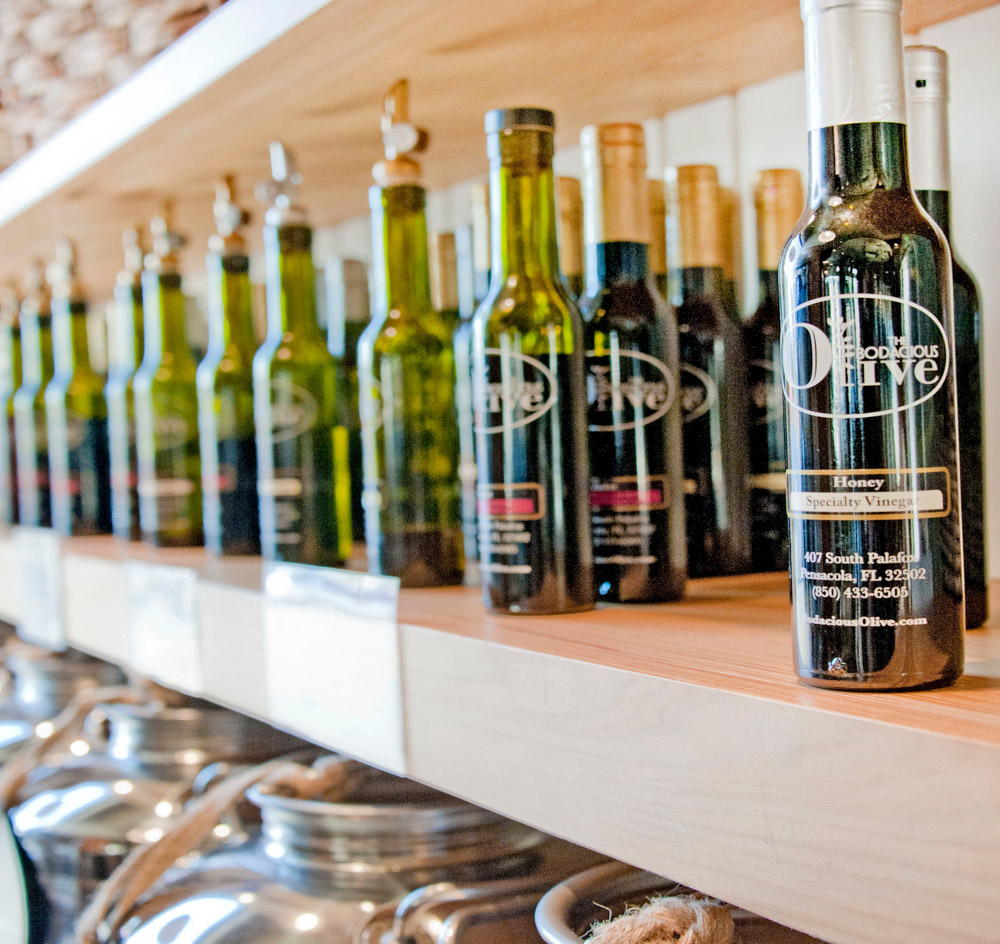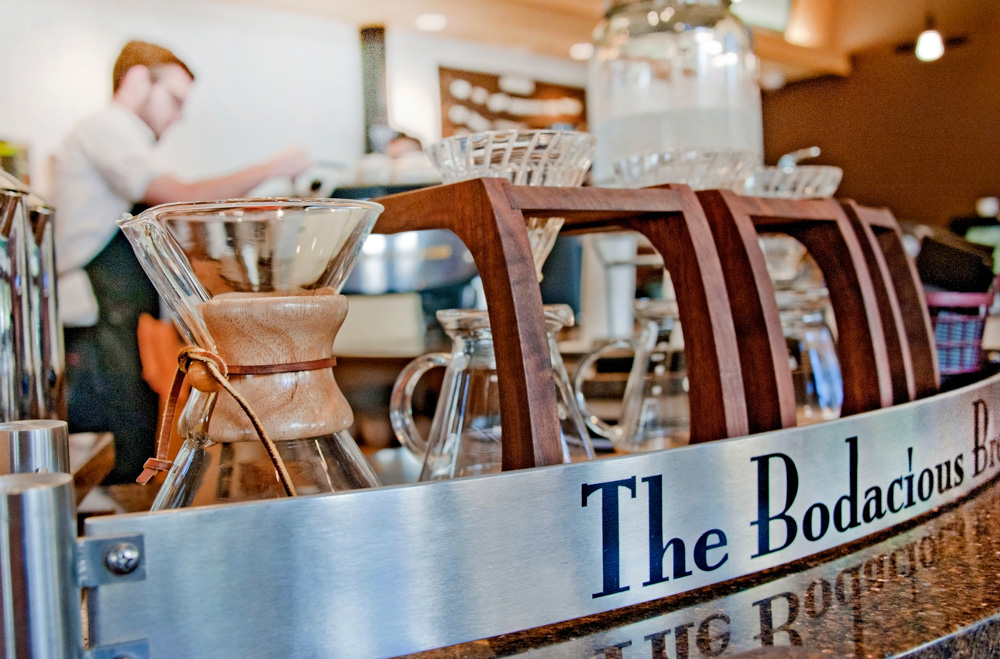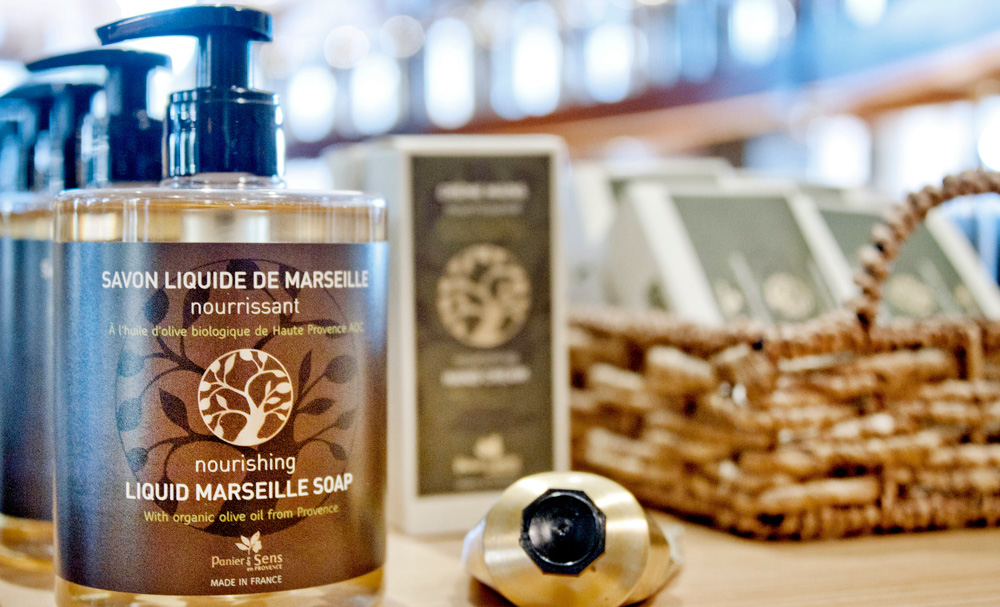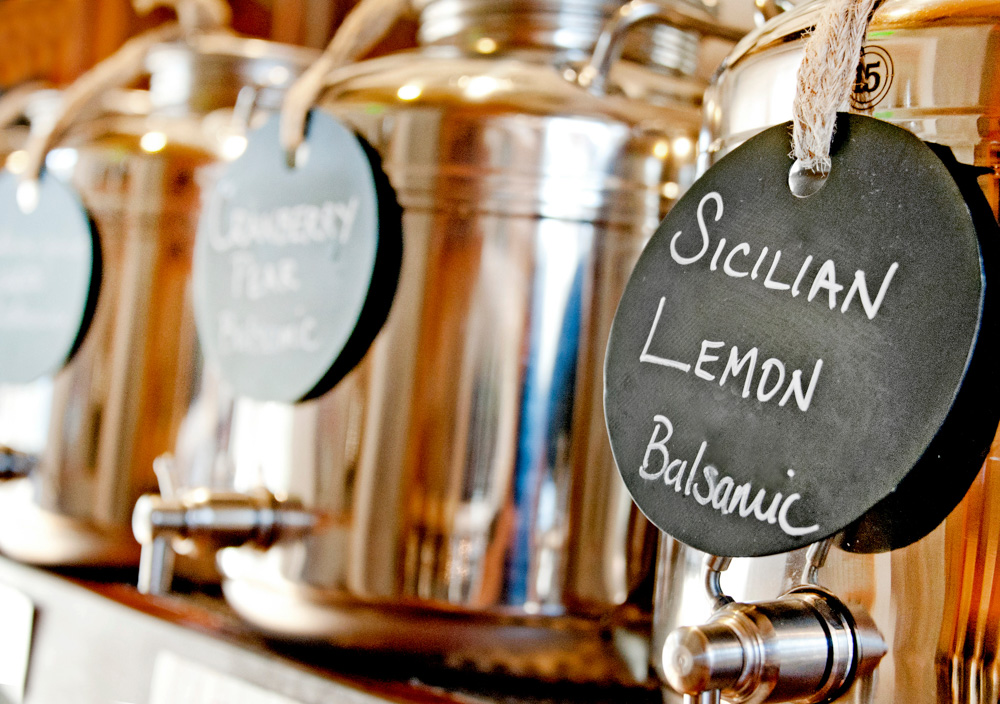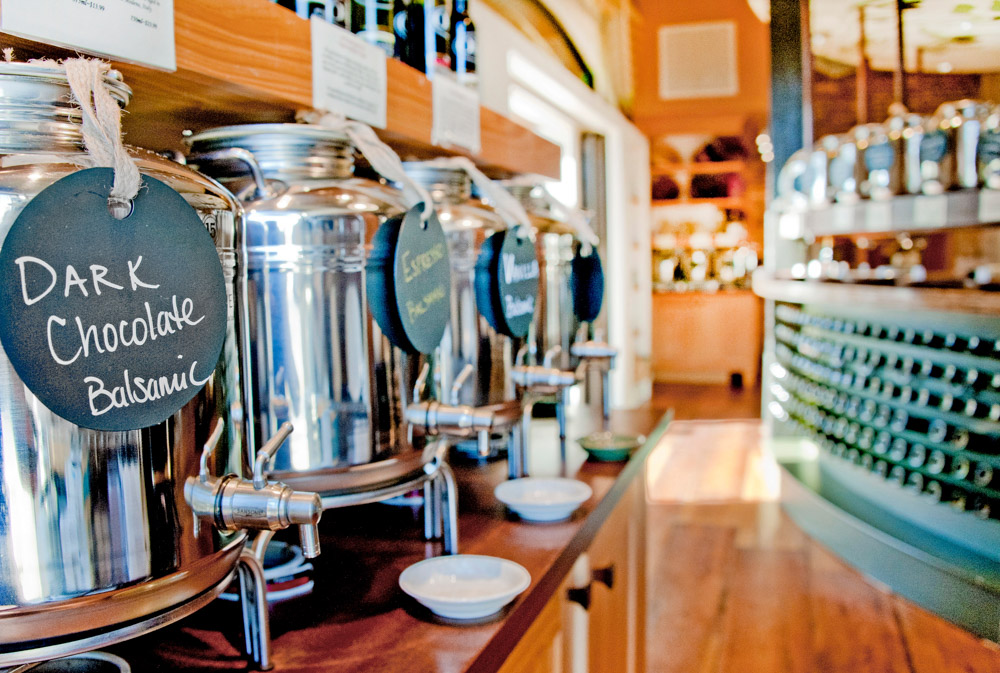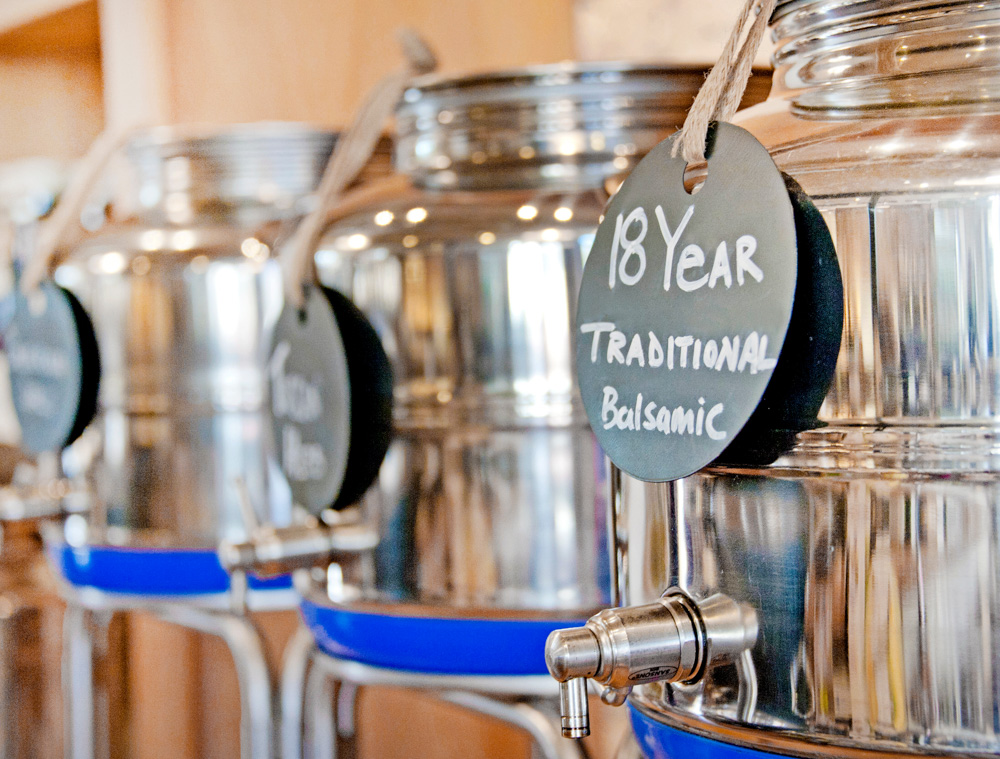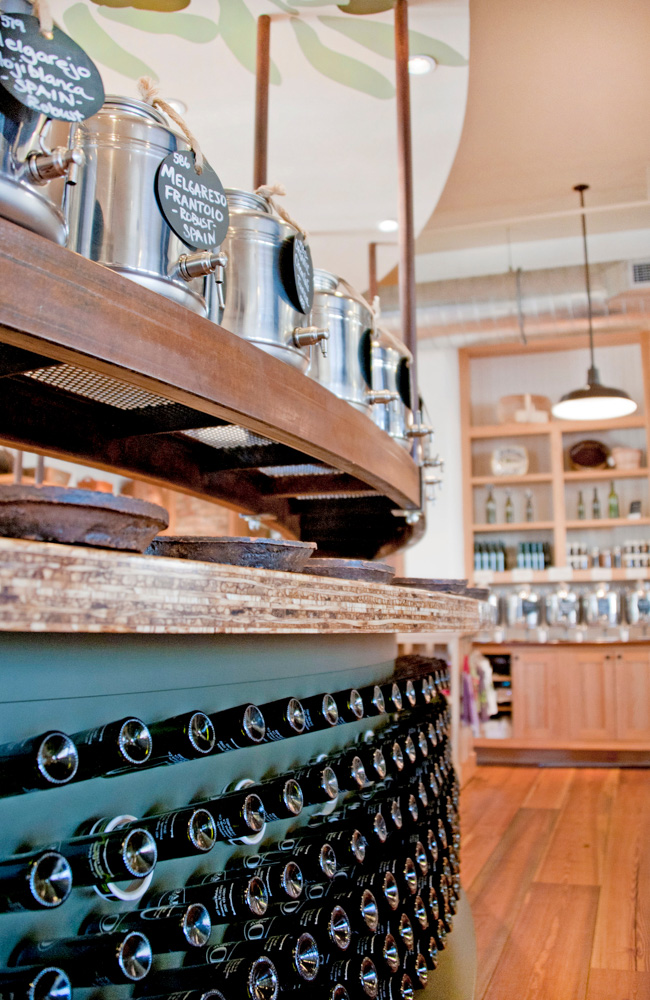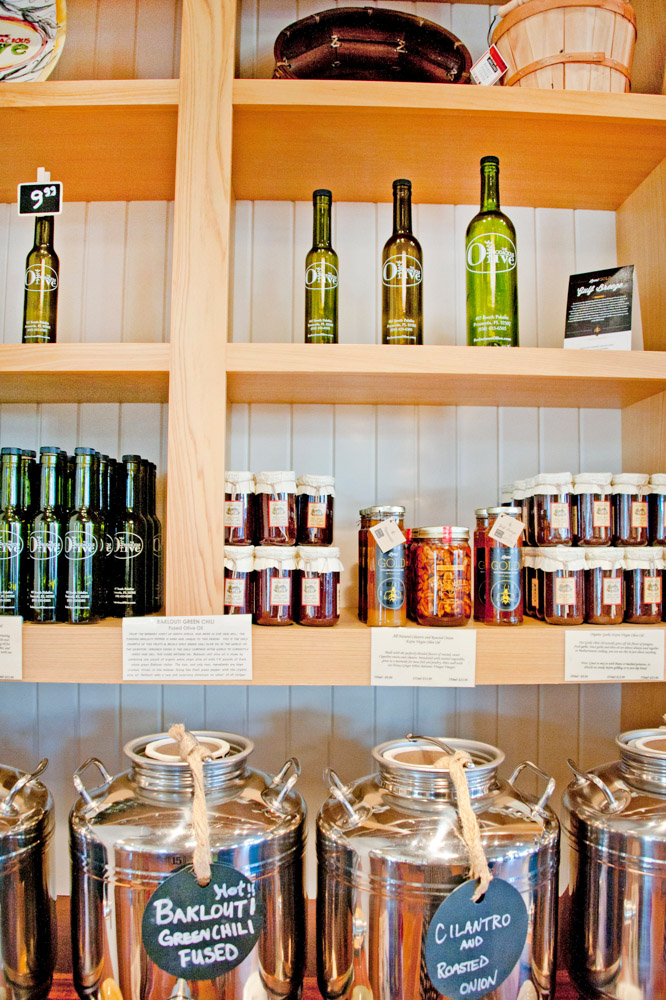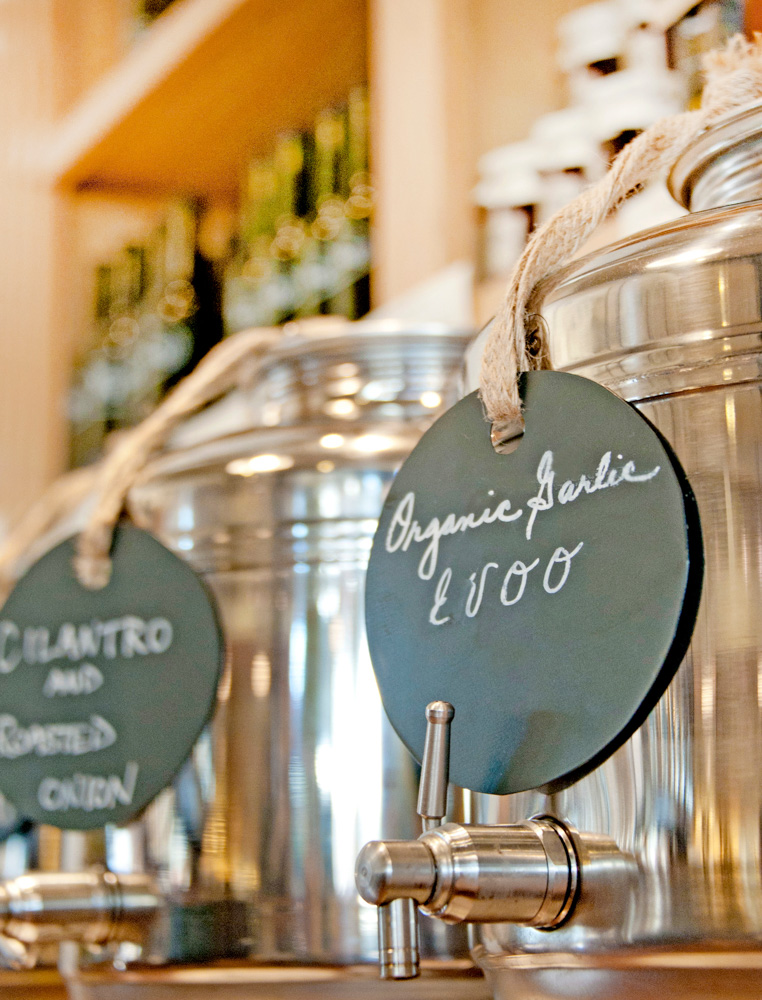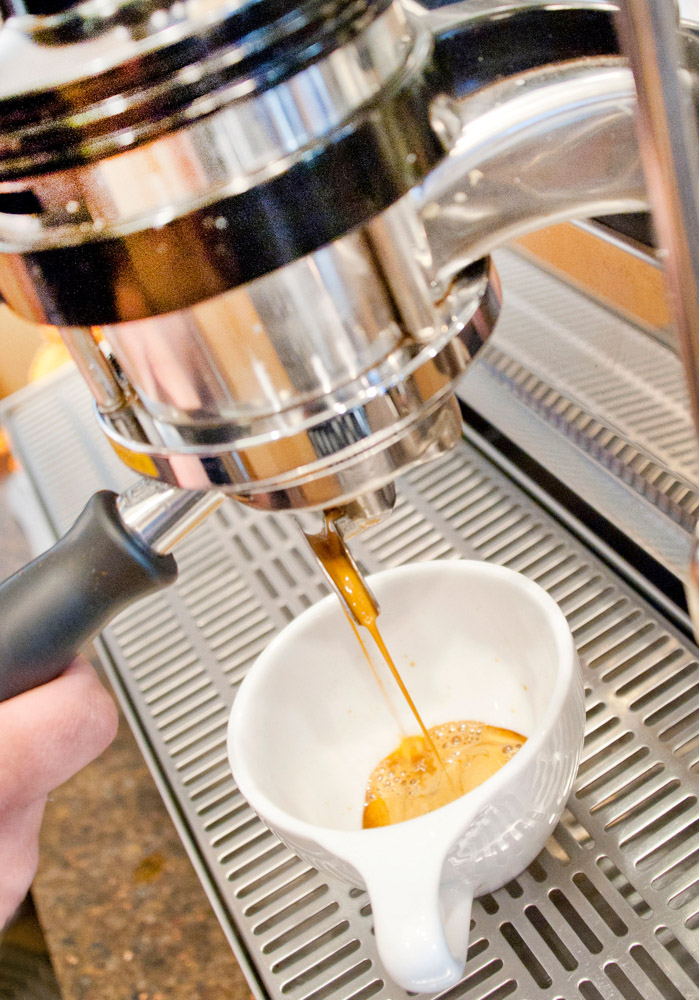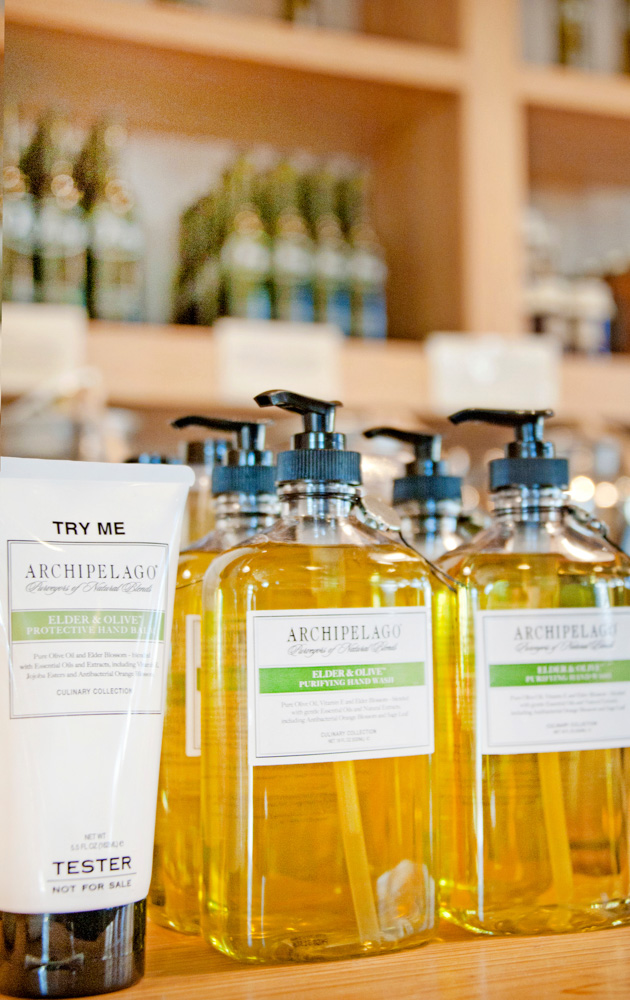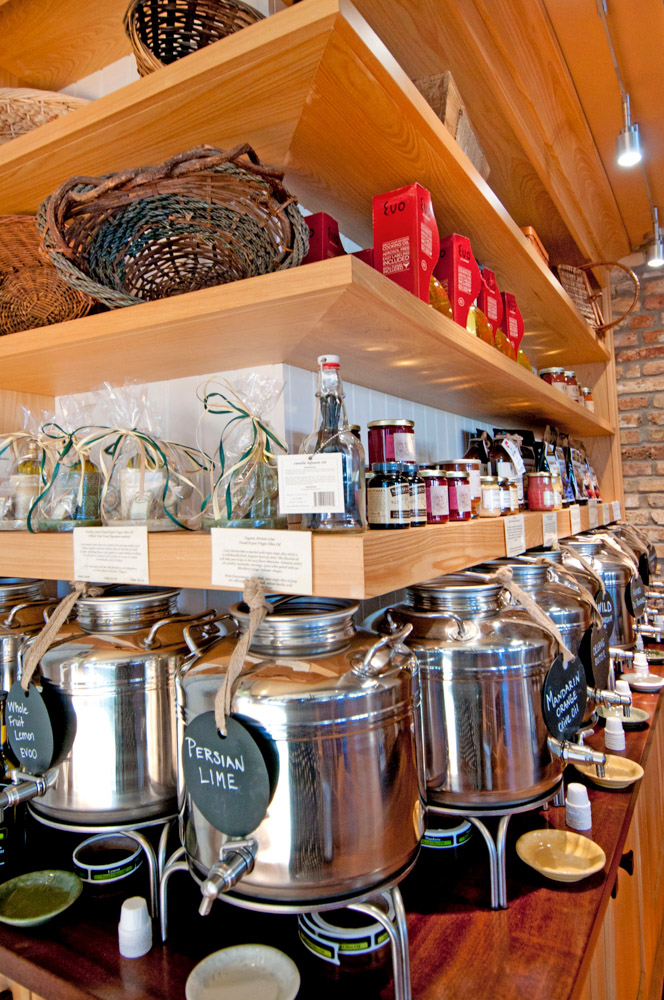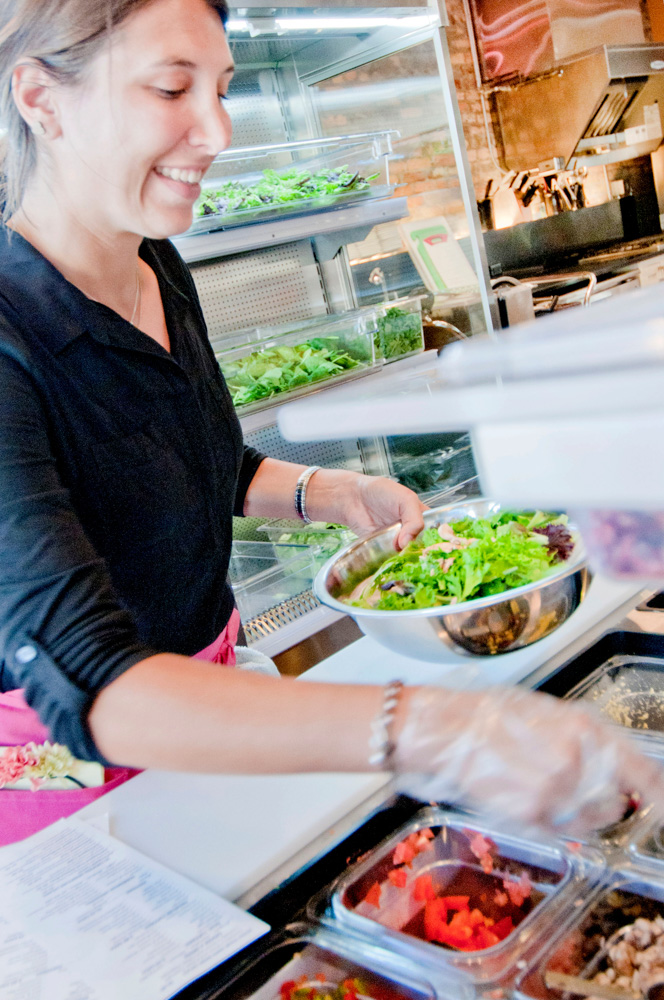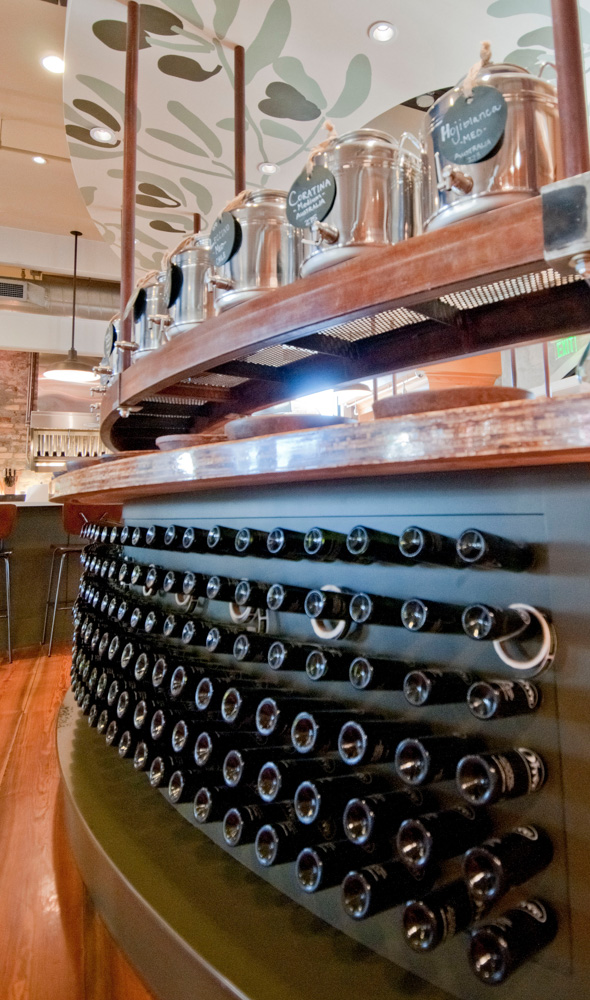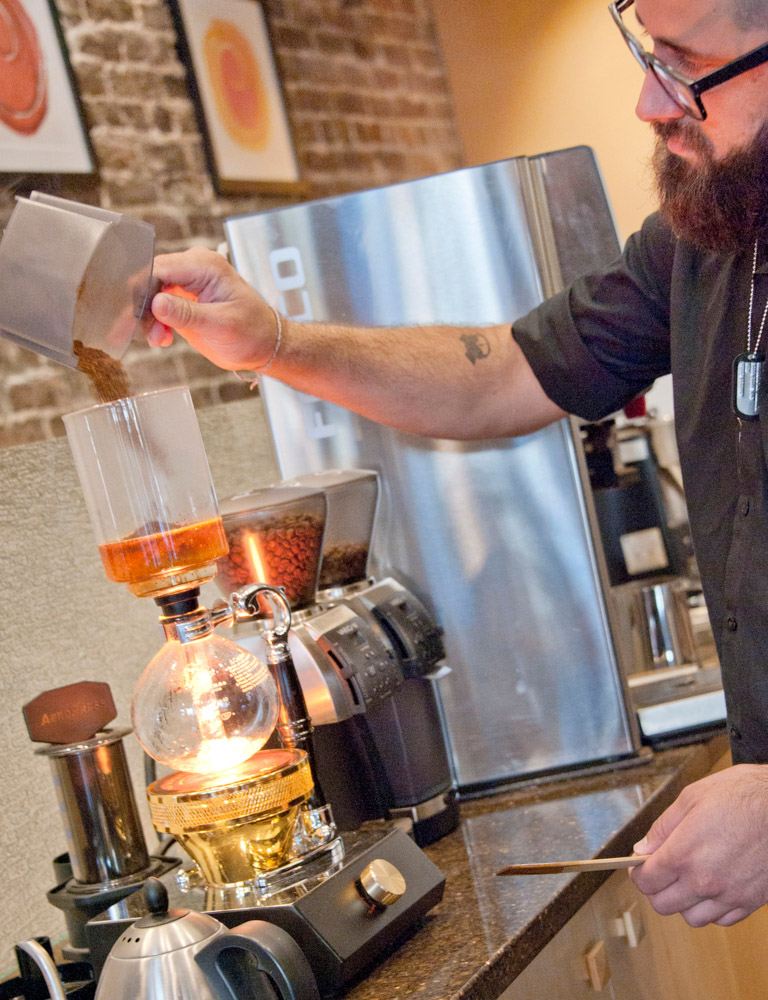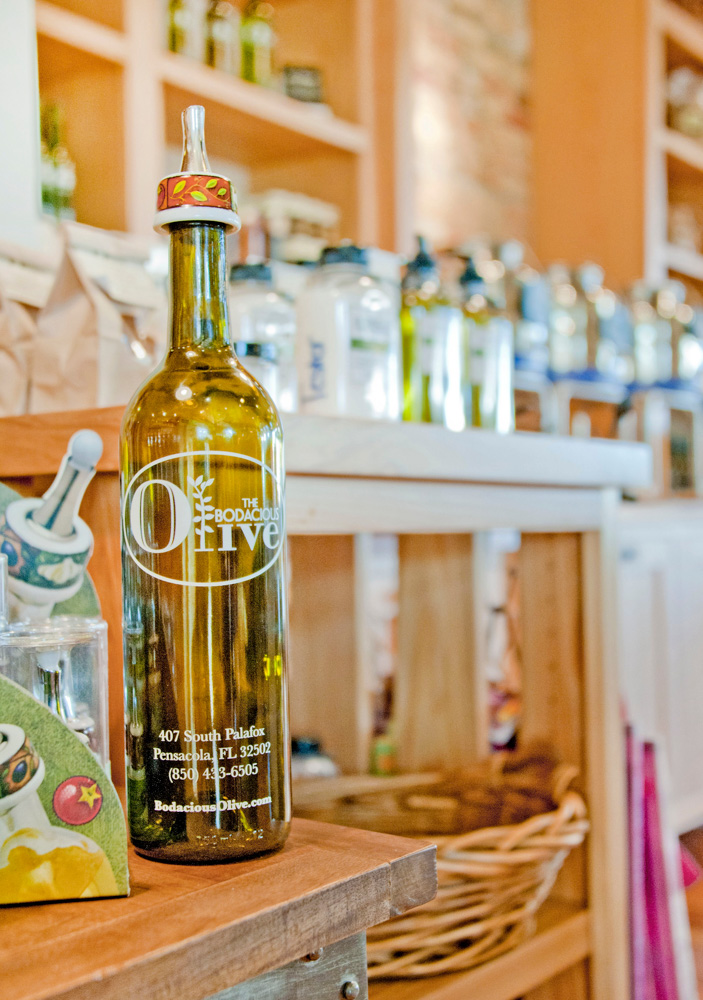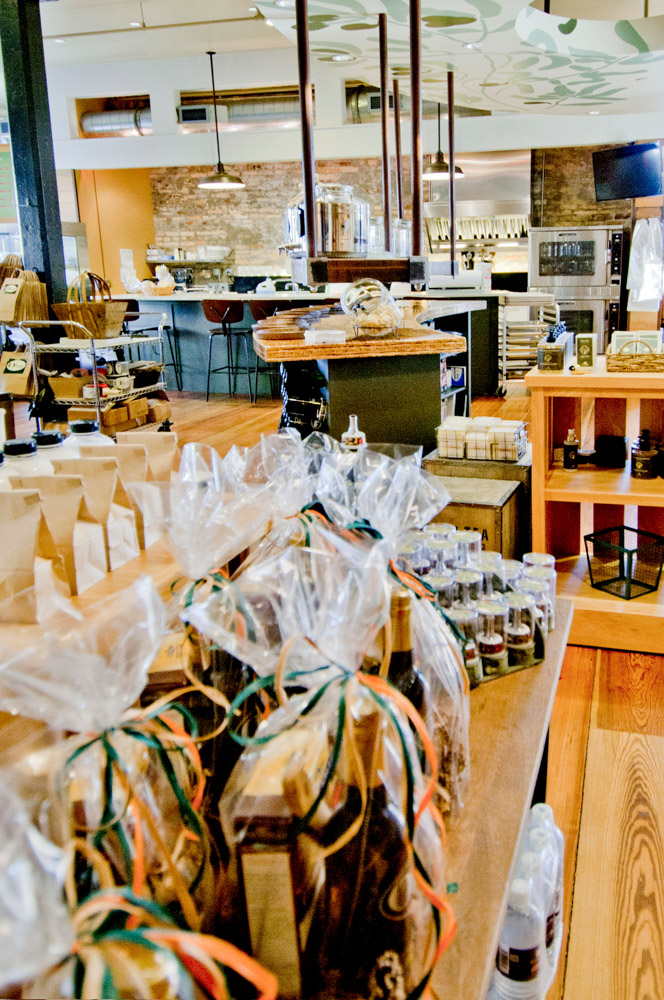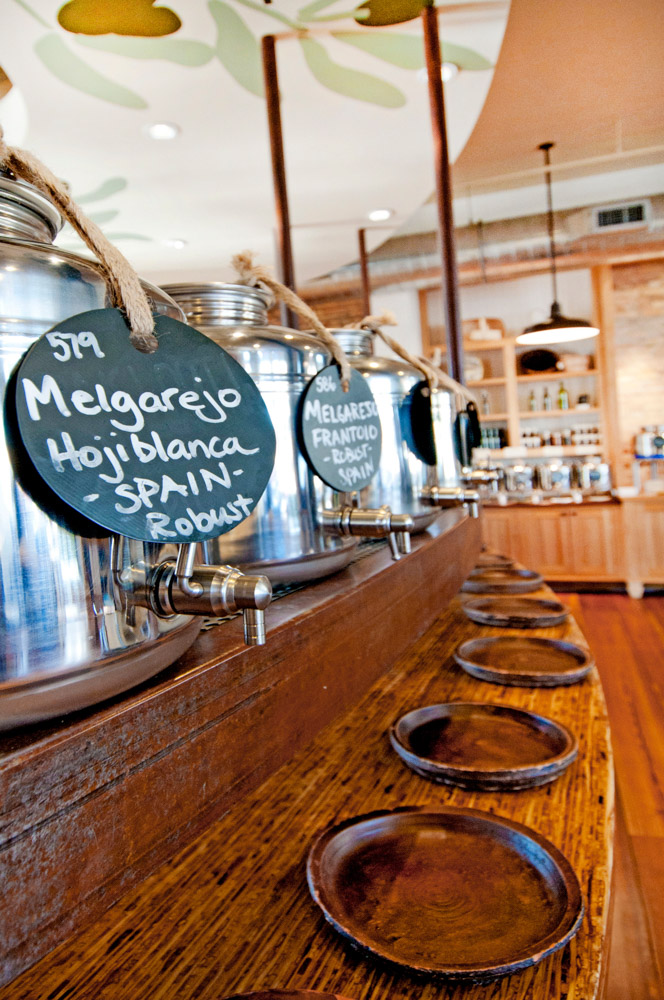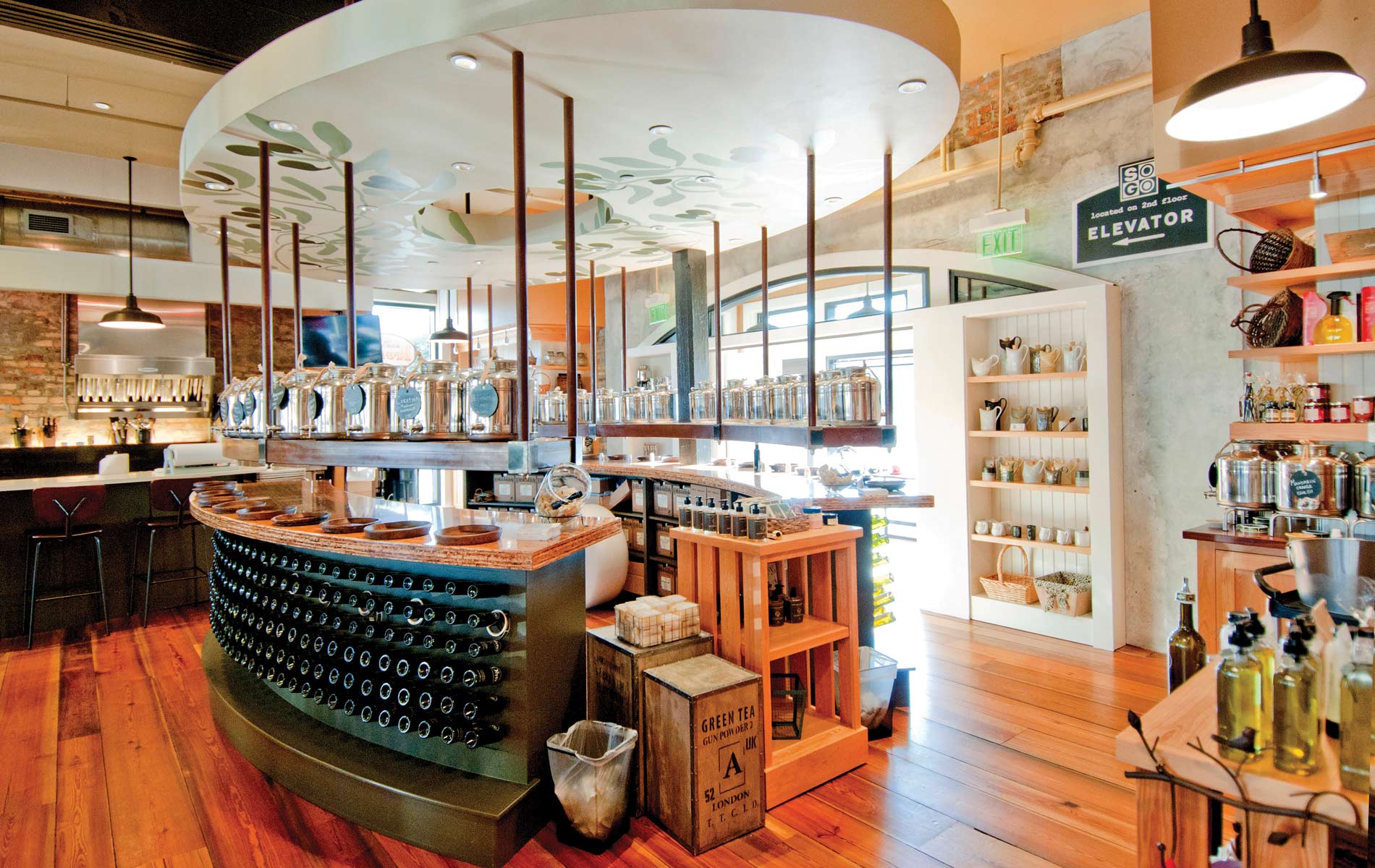
vie-magazine-bodacious-olive
Bodacious about Downtown Pensacola
By Sallie W. Boyles | Photography by Cheryl Casey
Bringing a smile to the lips, the word bodacious speaks volumes. Along with saying that something is remarkable and bold, the adjective further conveys the exuberance of the person who chooses such an expressive word. Without question, bodacious aptly describes one of downtown Pensacola’s most recently cultivated businesses, The Bodacious Olive, as well as the store’s founders.
The creation of owners Rishy and Quint Studer, The Bodacious Olive, which opened during the summer of 2012, has rapidly made a name for itself as a habit-forming epicurean market. Featuring more than fifty olive oils from around the world, the gourmet shop boasts all kinds of delectable varieties—from Cilantro and Roasted Onion extra virgin to Whole Fruit Lemon—plus an array of infused, spiced, and traditional balsamic vinegars to complement them. Finishing salts—unique in their textures, flavors, and origins—and all kinds of spices further please the palate.
We’ve always known what an incredibly beautiful and
historically interesting place this is, but the Studers have
made my job of marketing to tourists easier.
Alongside numerous flavor enhancers, The Bodacious Olive also sells its signature pasta, handmade each day, and mouthwatering sauces. The shop’s irresistible options continue with freshly baked bread and a thoughtful selection of wines. Awakening their customers’ taste buds, the Studers have also (thankfully) opened So Chopped, a salad bar overflowing with garden-fresh selections, as well as Bodacious Brew, a coffee shop café that serves premium caffeine fixes and good-for-you yummies. Plans for So Sweet, a soda shop, are also under way.
For those who love cooking as much as eating, So Gourmet, situated above The Bodacious Olive, sells top-quality kitchen accoutrements and conducts a professionally stocked and staffed cooking school. Lunch and dinner classes are available to the public and for private events, and all patrons savor So Gourmet’s views of downtown Pensacola from its porch balconies.
Incidentally, “So” is short for South—a nod to the SoGo District. Nicknamed by the merchants, SoGo, a colloquial for “south of Government,” refers to a stretch along Pensacola’s historic Palafox Street that begins south of Government Street. Evolving as the place to shop, dine, work, and soon live, SoGo and the rest of downtown Pensacola credit the early adaptors—bold business owners who moved into abandoned spaces—as well as philanthropic investors, namely Rishy and Quint Studer, for breathing new life into an area that not so long ago seemed lost to the past.
Like many cities, Pensacola’s downtown fell into decline when businesses and homeowners moved to outlying neighborhoods. Hurricanes Ivan in 2004 and Dennis in 2005 could have hastened the destructive path, but the Studers endeavored to turn the tide.
“Traveling, I would see vibrant downtowns,” says Quint, who is known worldwide as CEO of the Studer Group, a private health-care consulting company he founded in 1999 after serving as president of Baptist Hospital in Pensacola. By 2002, Modern Healthcare, the health-care industry’s go-to resource, named Studer one of the “Top 100 Most Powerful” in the field. In 2004, the Studer Group’s success, based upon instilling accountability and measuring results, caught the attention of Gallup CEO Jim Clifton. “As Jim and I got to know one another,” explains Quint, “he shared a study of why some cities grow and some don’t.”
Gallup found that a flourishing downtown contains various components, starting with something to attract a high number of people to the area. “Office buildings will follow,” Quint says. Residential comes next, as people decide they like where they work and want to live close by. “Most of the time retail comes last,” he continues, “because people won’t invest unless they know the business can be viable. Since 2004, we have been putting these little pieces together for downtown Pensacola.”
Certain pieces, like the main attraction, would be significant. Quint and Rishy, in fact, purchased “twenty-seven acres of environmentally toxic land and cleaned it up” in order to erect a baseball stadium. Yielding incredible sunsets on the bay and earning accolades like Ballpark of the Year from Ballparks.com, the Pensacola Bayfront Stadium is home to the Pensacola Blue Wahoos, a Double-A baseball team the Studers also purchased. Consequently, Quint proclaims, “Each year over the past three, we’ve drawn over three hundred thousand fans to downtown. On seventy nights per year, we have over four thousand people coming to downtown.”
While the stadium was under construction, the Studers knew they had to address the neighboring vacant buildings and lots. “How could we attract investors if they came downtown and saw that?” Quint poses. Thus, the Studers began buying up partially empty and abandoned properties, including the building occupied by The Bodacious Olive.
By restoring existing buildings, the Studers preserve Pensacola’s cultural history; by investing in people, they foster a new generation of entrepreneurs. The acclaimed Five Sisters Blues Café, for instance, celebrated for its Southern comfort food, occupies a building with historically significant ties to Pensacola’s African-American music industry. Likewise, renovations and affordable rents have helped launch a floral shop, a hair salon, and Carmen’s Lunch Bar.
Before opening its doors, Carmen’s already had a fan base, having won the Pensacola Business Challenge, a new business initiative both conceived and sponsored by the Studers. Offering a $50,000 prize (subsidized rent and capital), the competition required applicants to complete a business plan with the help of the University of West Florida’s College of Business. “One hundred people attended the first meeting,” says Quint. In the end, thirty-three business plans were submitted and judged by local businesspeople. With a solid plan in hand, other participants have also launched their dreams. Many more have attended the nonprofit Studer Institute’s leadership classes, which help prepare entrepreneurs for the challenges ahead.
“The Studers have given talented people so many more avenues through which to express themselves,” says Brooke Fleming, a Pensacola native and communications manager for Visit Pensacola. As it so happens, she also worked in sports broadcasting for the Wahoos upon returning to her hometown in 2010 after graduating college. “I’ve been awarded so many opportunities, thanks to them.”
In addition to fostering downtown business growth, the Studers are tackling the housing component, primarily by taking advantage of idle space in the Pensacola News Journal building, which sits on nearly six acres, to construct between 200 and 260 affordable residential apartments. Although high-end condos are going into other buildings above retail space, the Studers contend that the heart of a city must be viable for all. “We can’t just have wealthy people in condos,” says Quint.
Yet another project, Maritime Place, entails a 77,000-square-foot office building, the first of its kind in thirty years. “We’ll add 250 employees to downtown Pensacola and generate $250,000 more in property tax revenue,” Quint proclaims. “People should know that we didn’t just buy office buildings to make money off the rent. Investing in private businesses that will make a difference is what Rishy and I do. We like watching people have a better quality of life.”
We’ve always known what an incredibly beautiful and
historically interesting place this is, but the Studers
have made my job of marketing to tourists easier.
“We’ve always known what an incredibly beautiful and historically interesting place this is,” says Brooke, “but the Studers have made my job of marketing to tourists easier. People of all ages and interests want to spend time here because there’s so much to do. Also, one of the great things about downtown Pensacola,” she adds, “is that all of this is within walking distance. Because everything is so close, you need only one parking spot, and if you arrive in the evening, parking is free.”
As the pieces come together, the Studers know from experience that success results from instilling structures that hold people accountable. “We always tell the middle managers in health-care organizations that they are the solution,” Quint says. “They stay, but executives come and go.” For similar reasons, the Studers invest in private businesses—the stakeholders who are committed to long-term success—rather than politicians.
Belief in the human spirit certainly influences their commitment. Before entering health-care management, Quint, who is hearing impaired, was a special education teacher. “I learned to maximize the potential in others,” he says. Now sober for thirty years, he also battled alcoholism, and his ability to turn his life around has given him empathy for others. “You learn to believe in people,” he confides, “even when they’re not doing so well.”
If the Studers and others continue to be bodacious about downtown Pensacola, people from all walks of life should do quite well there.
— V —
Share This Story!
KEEP UP WITH THE LATEST STORIES FROM VIE



